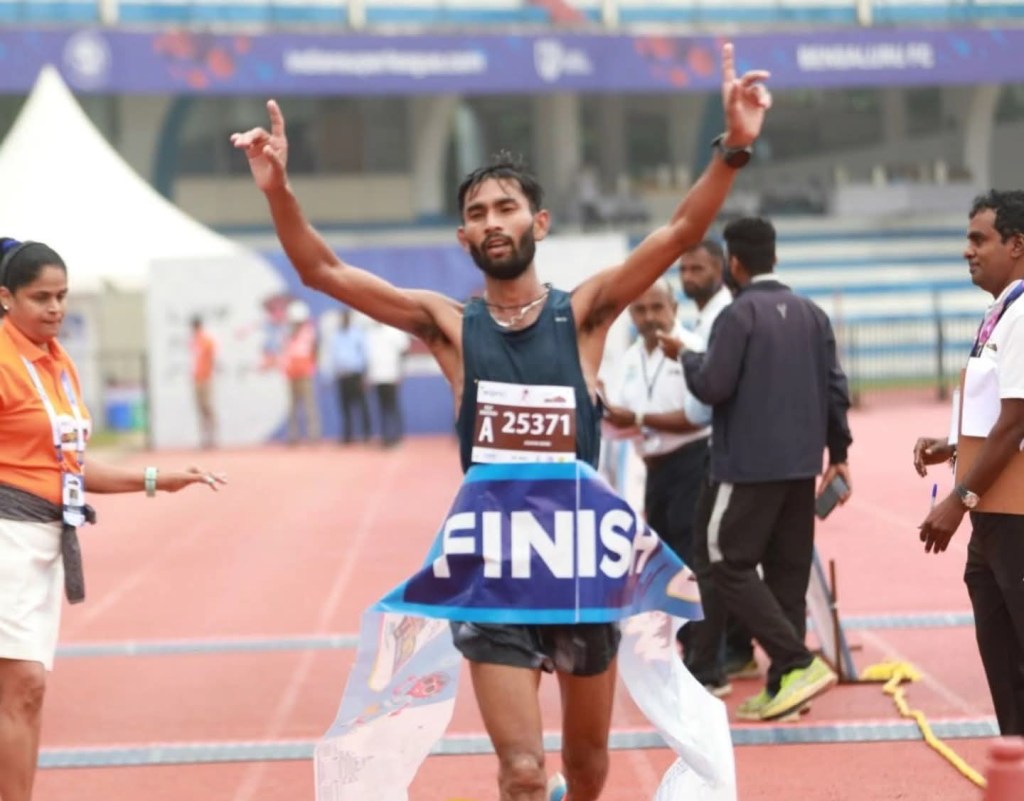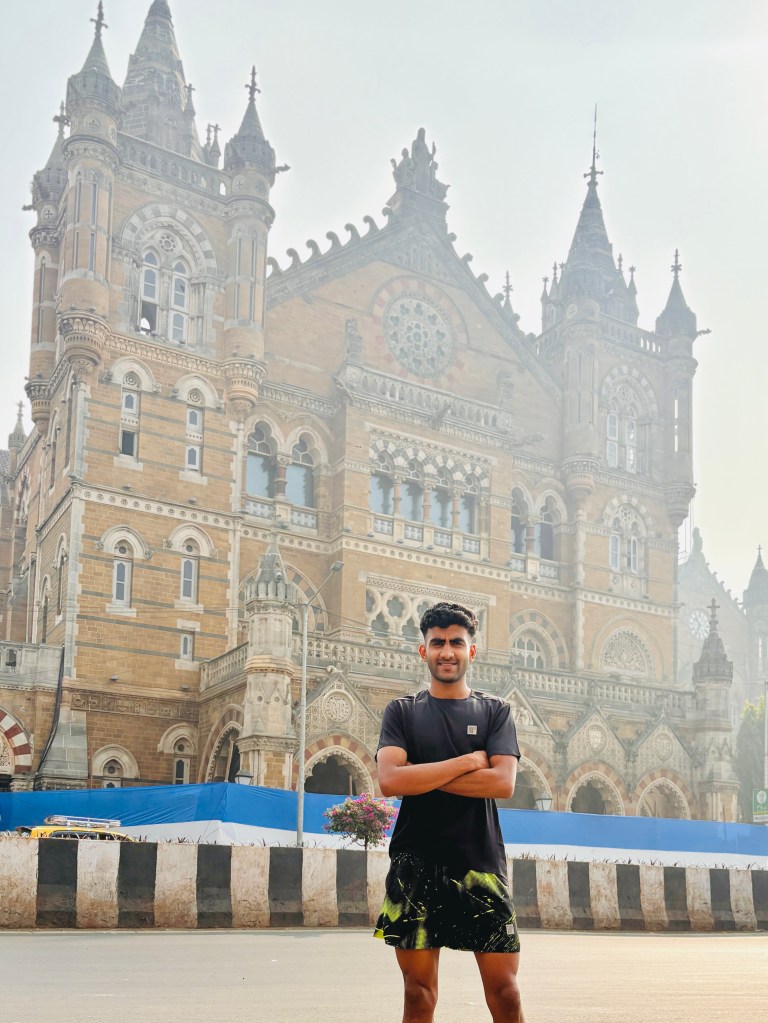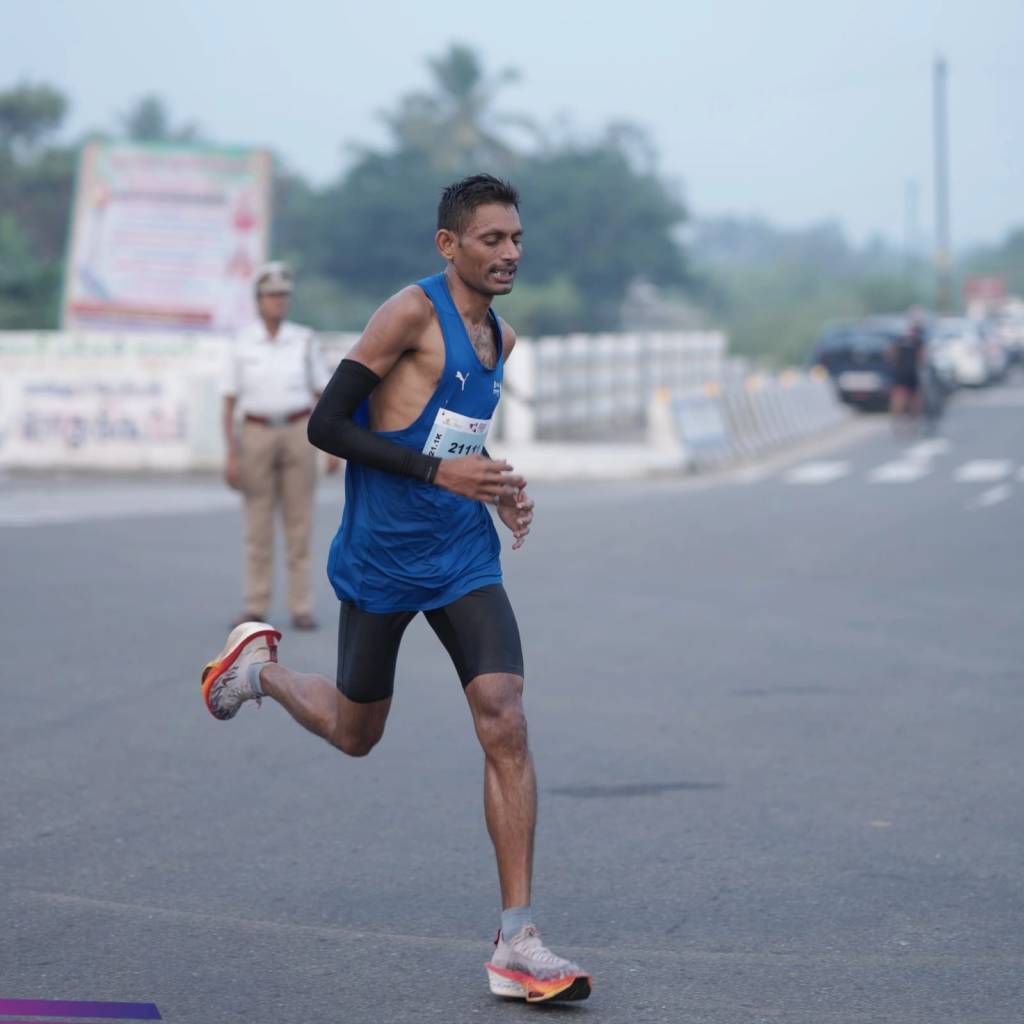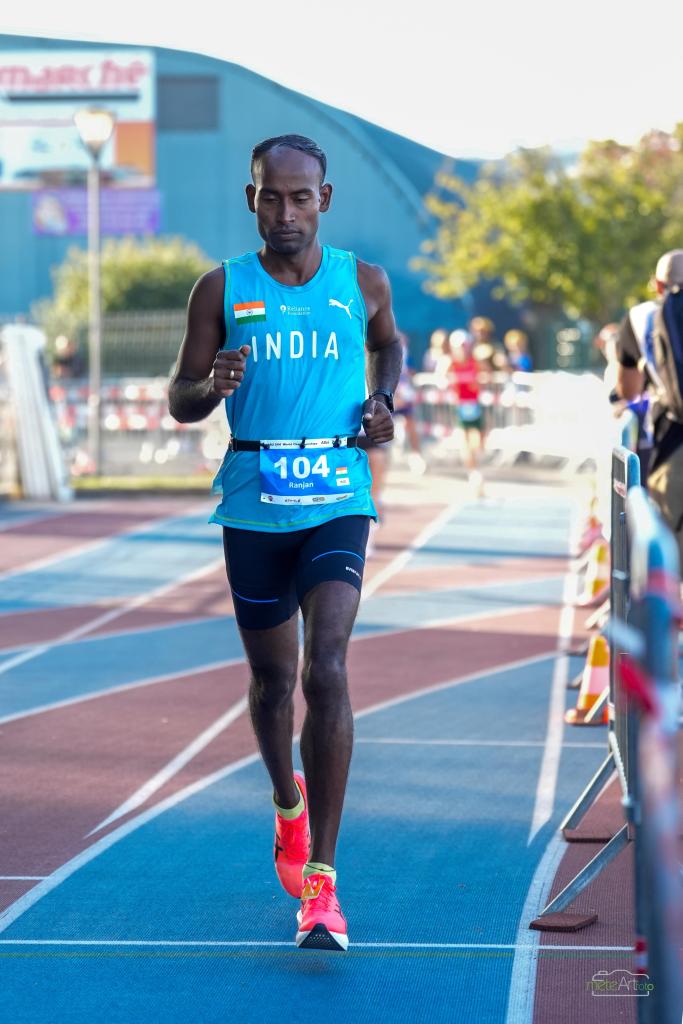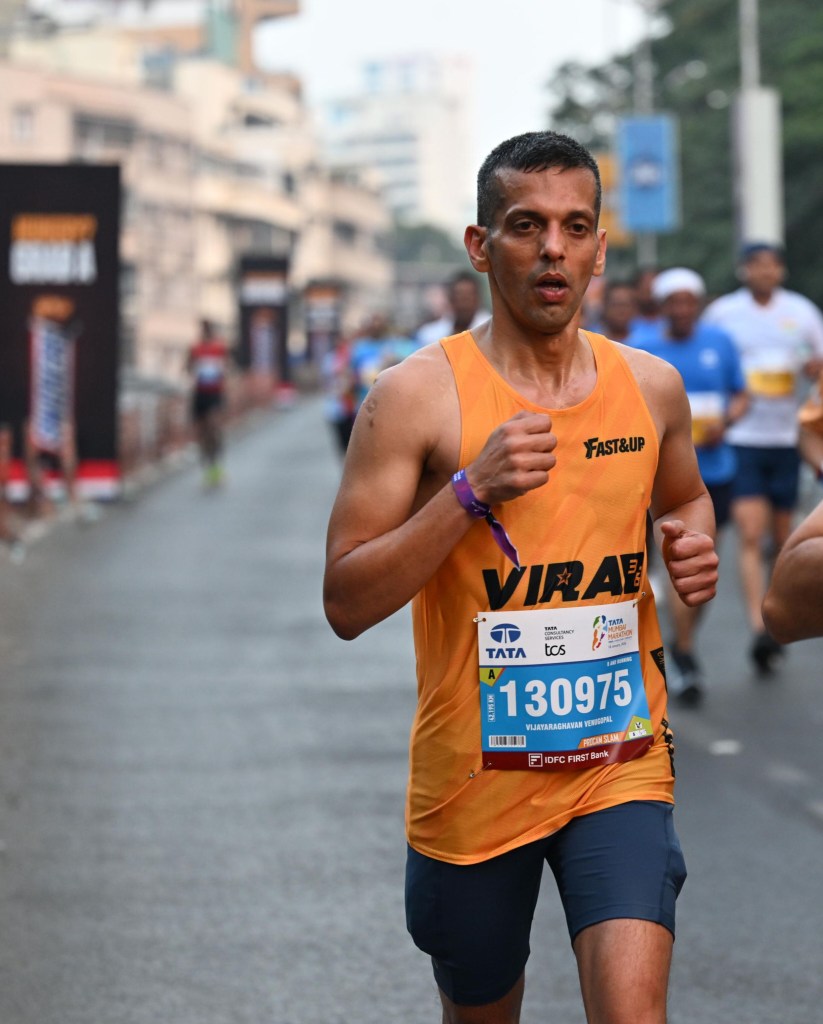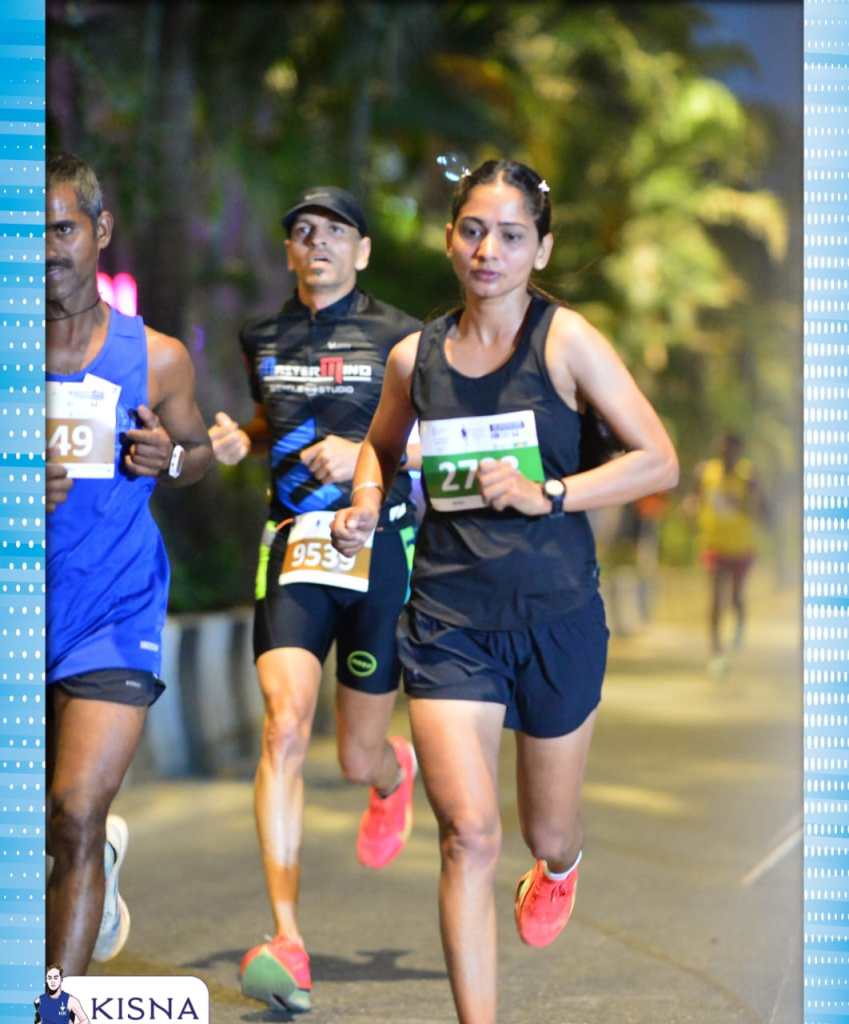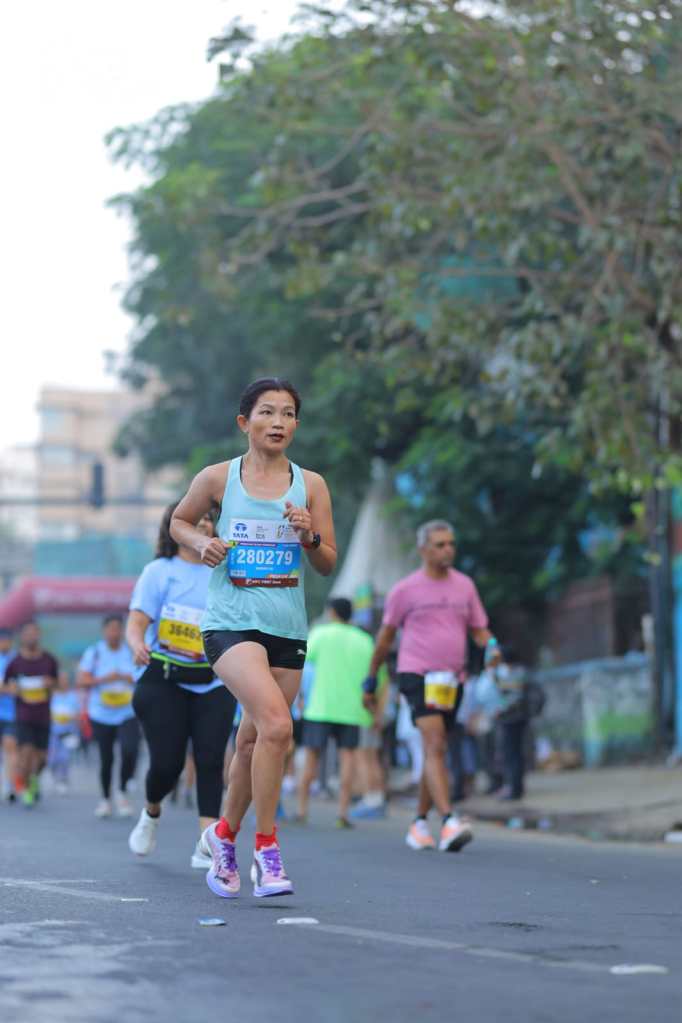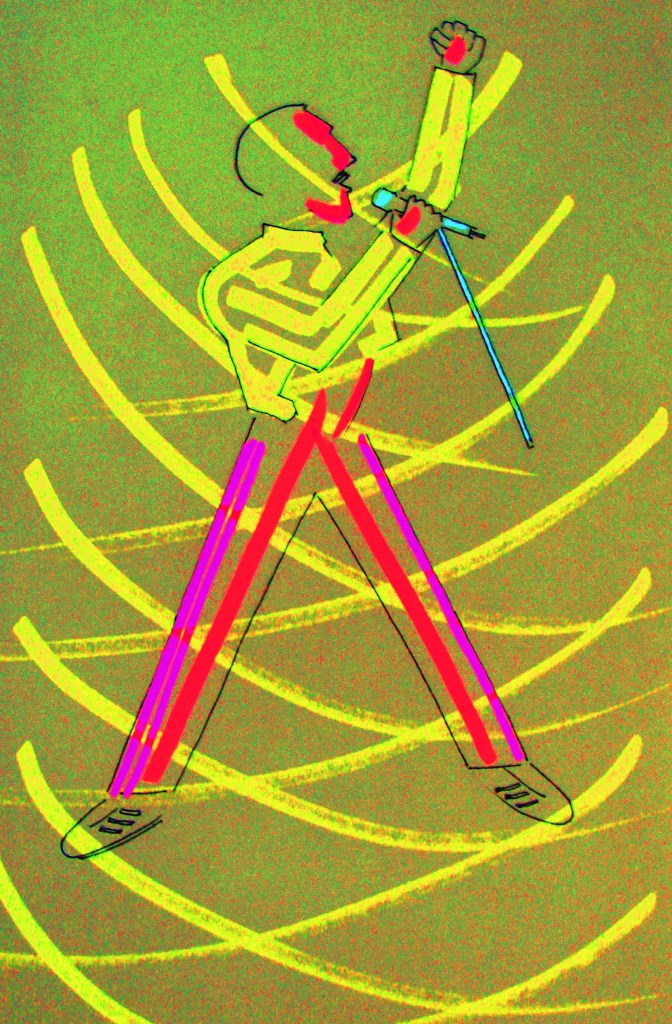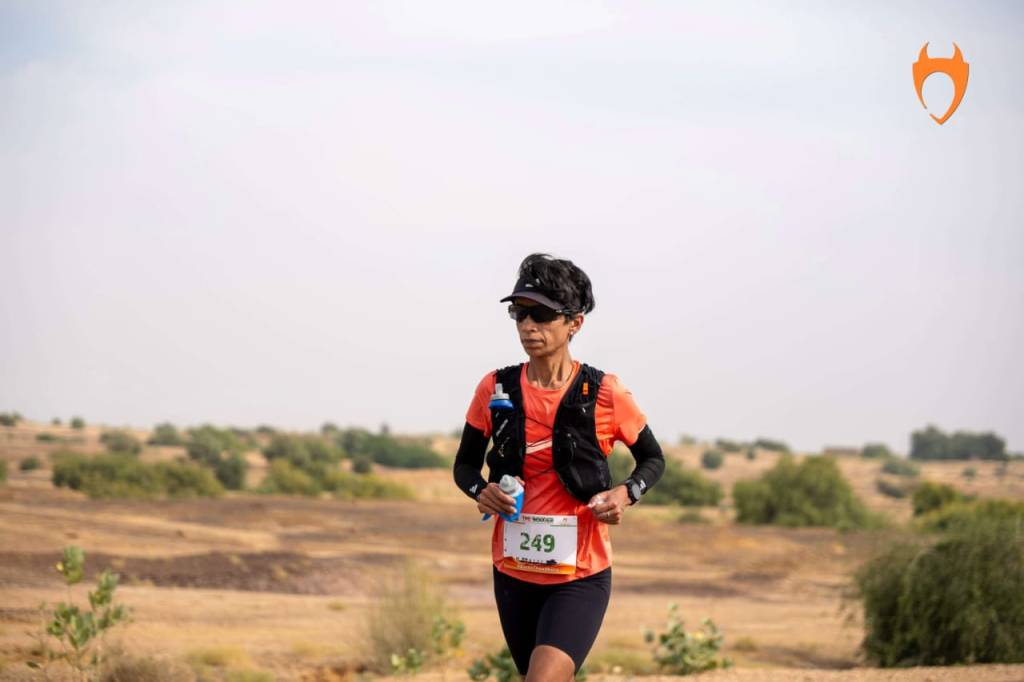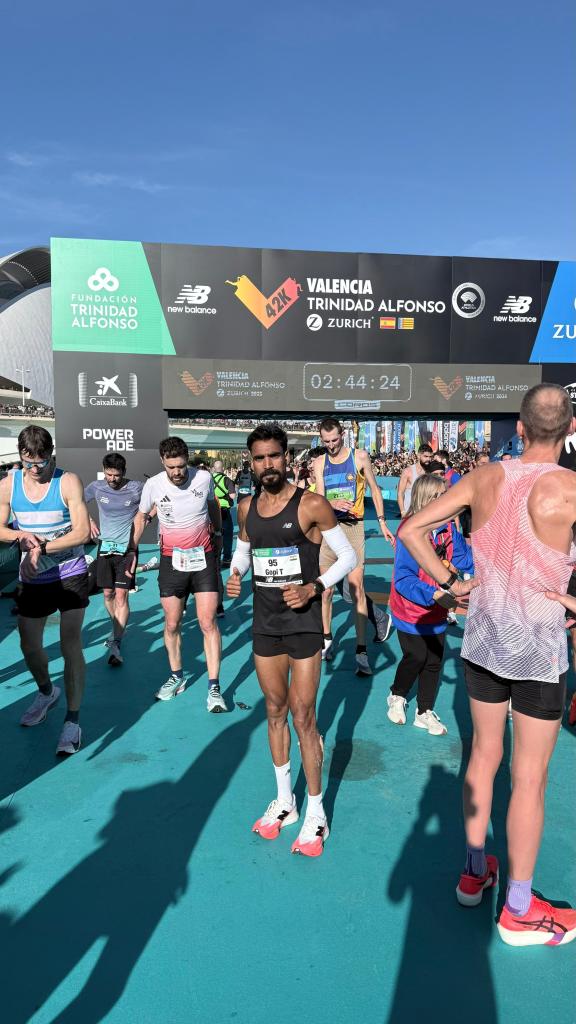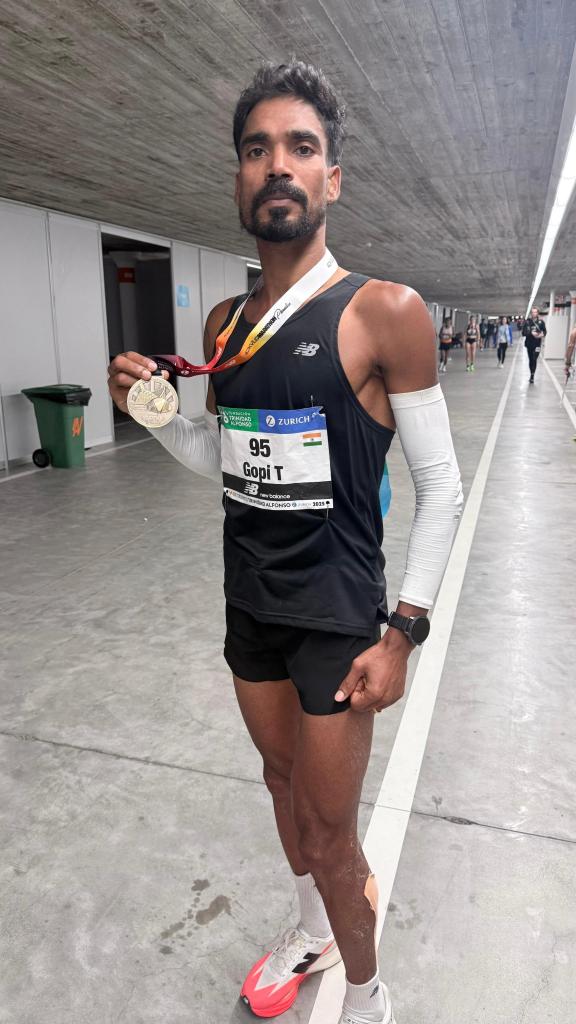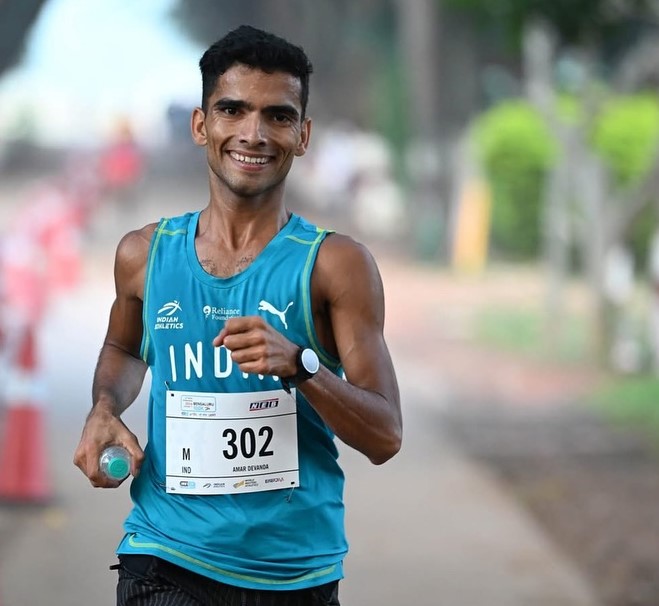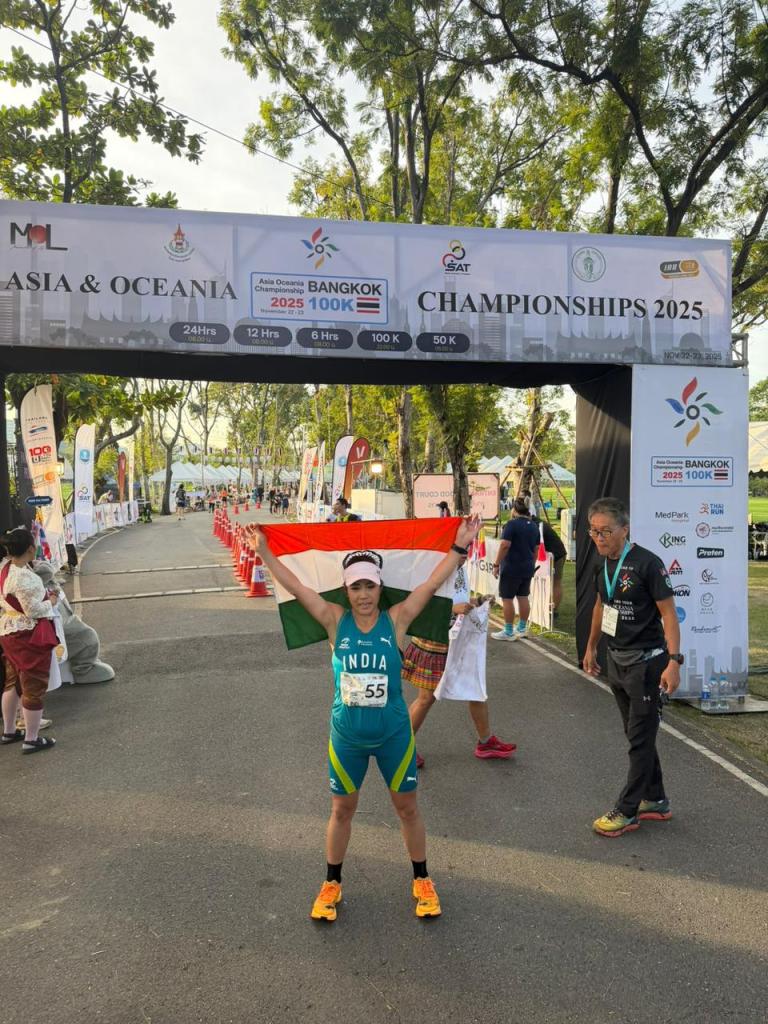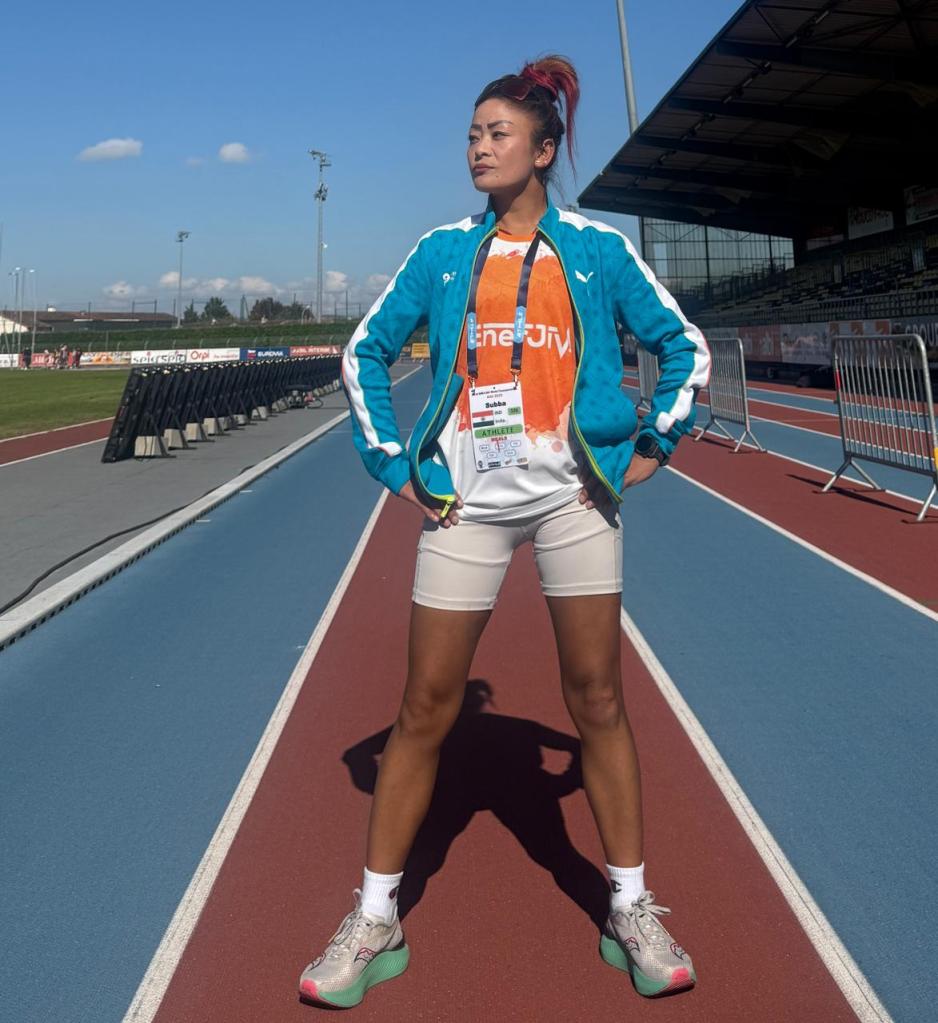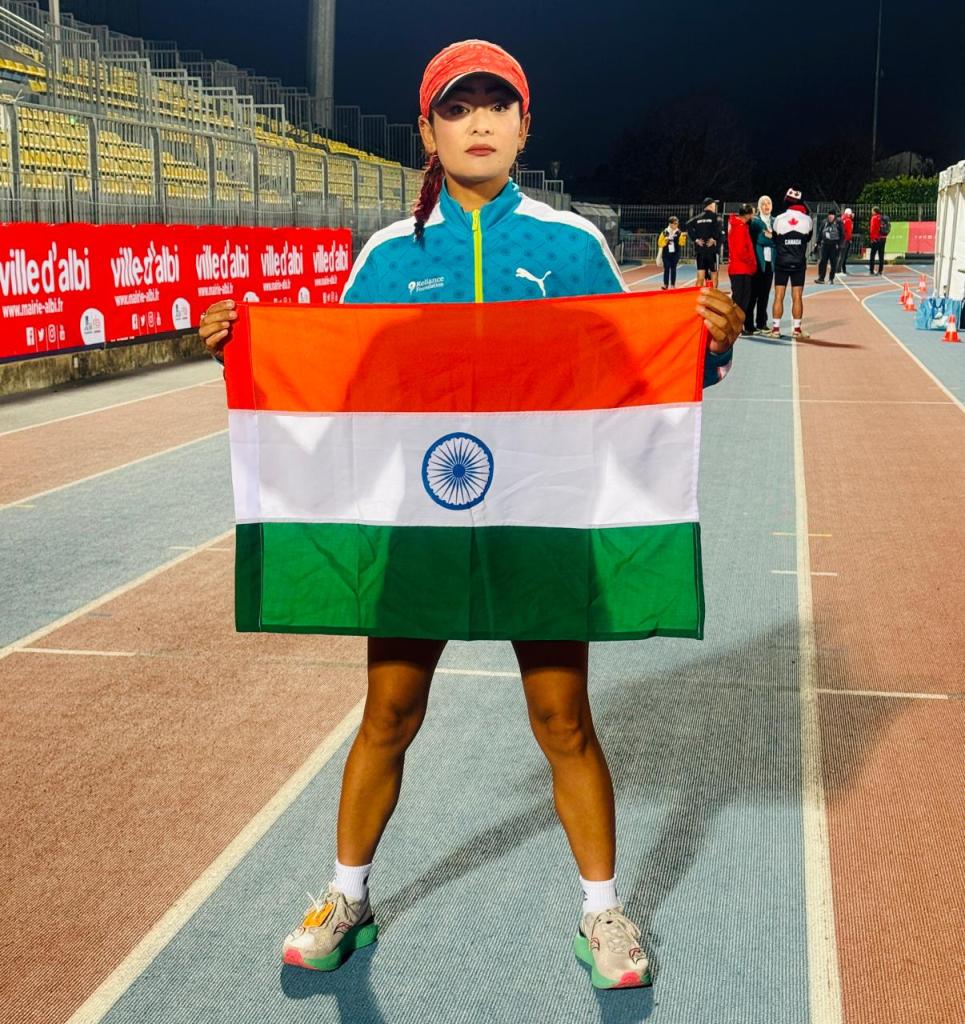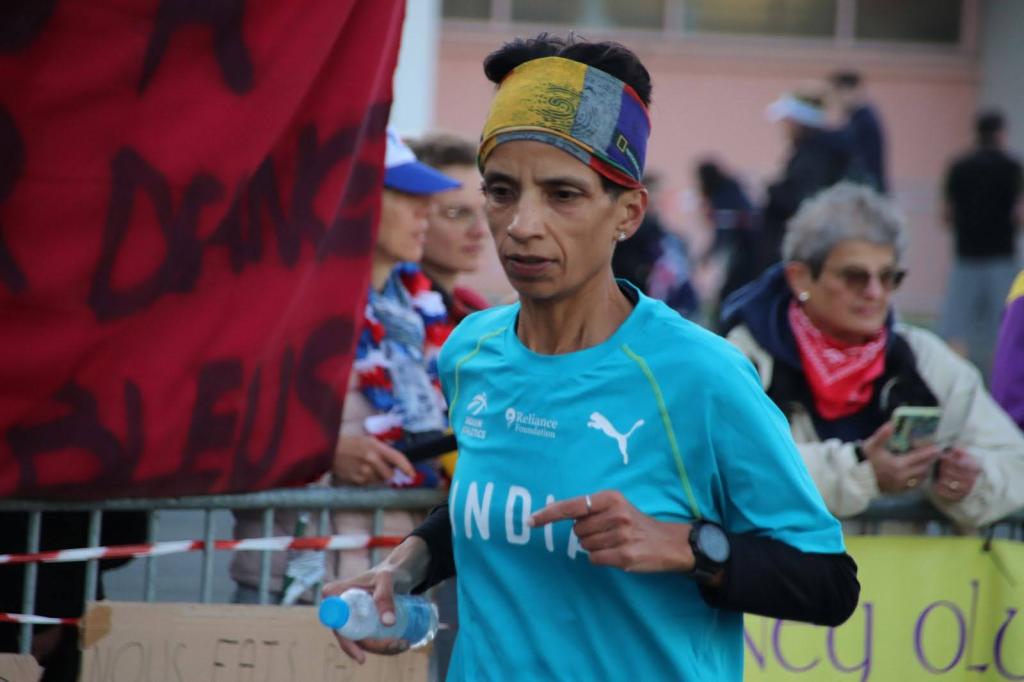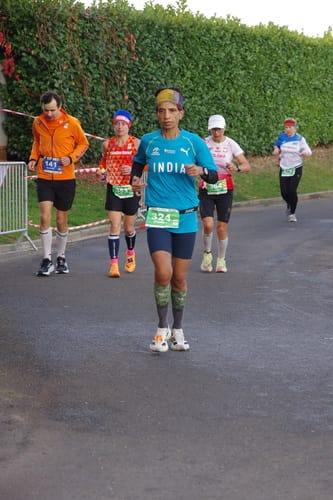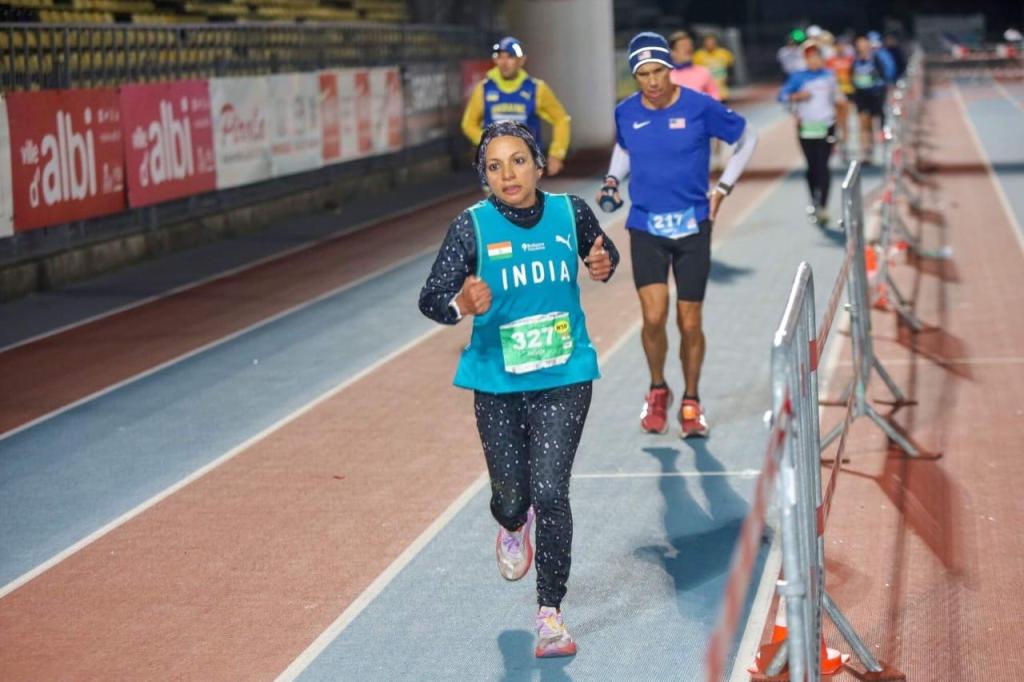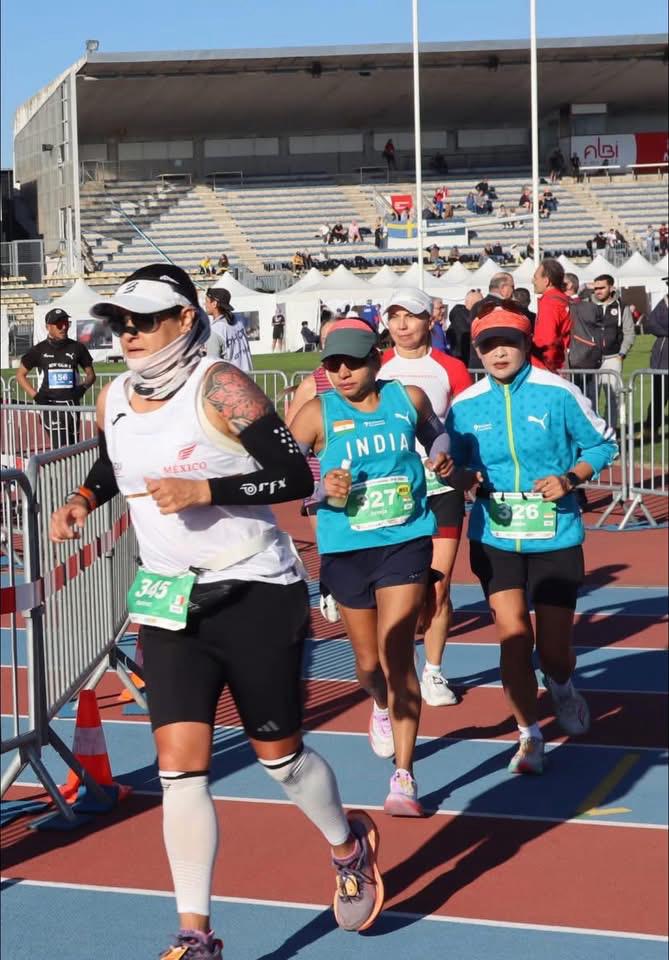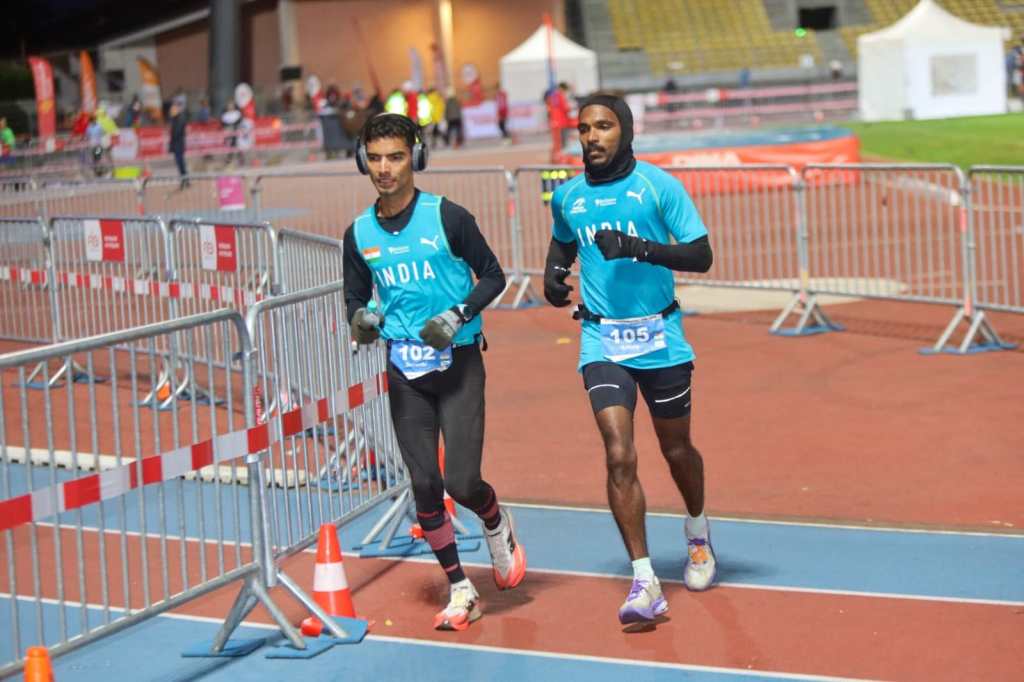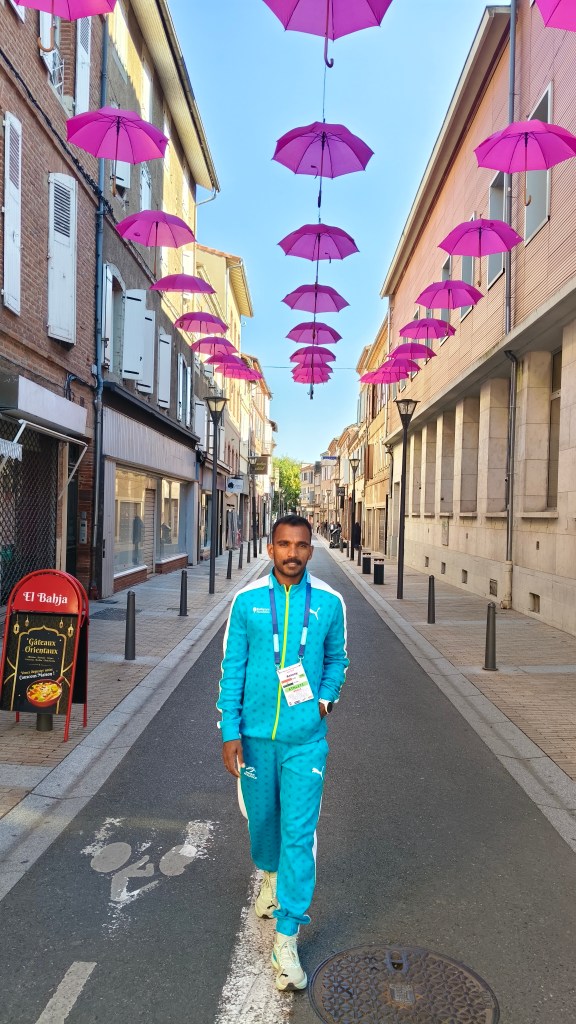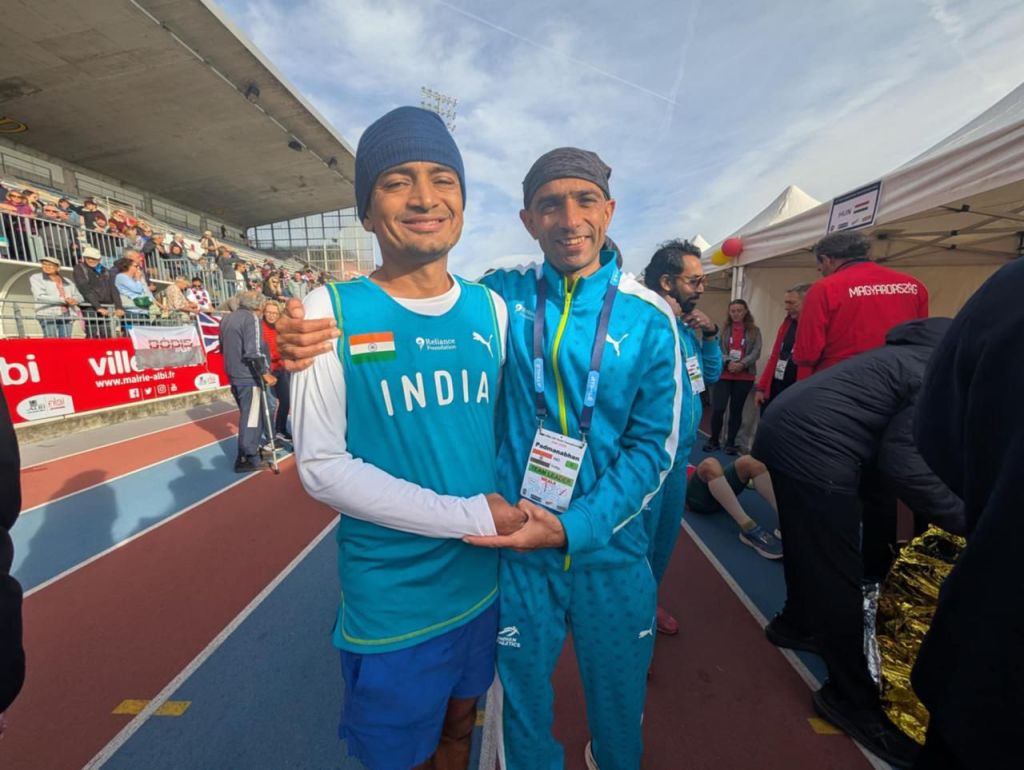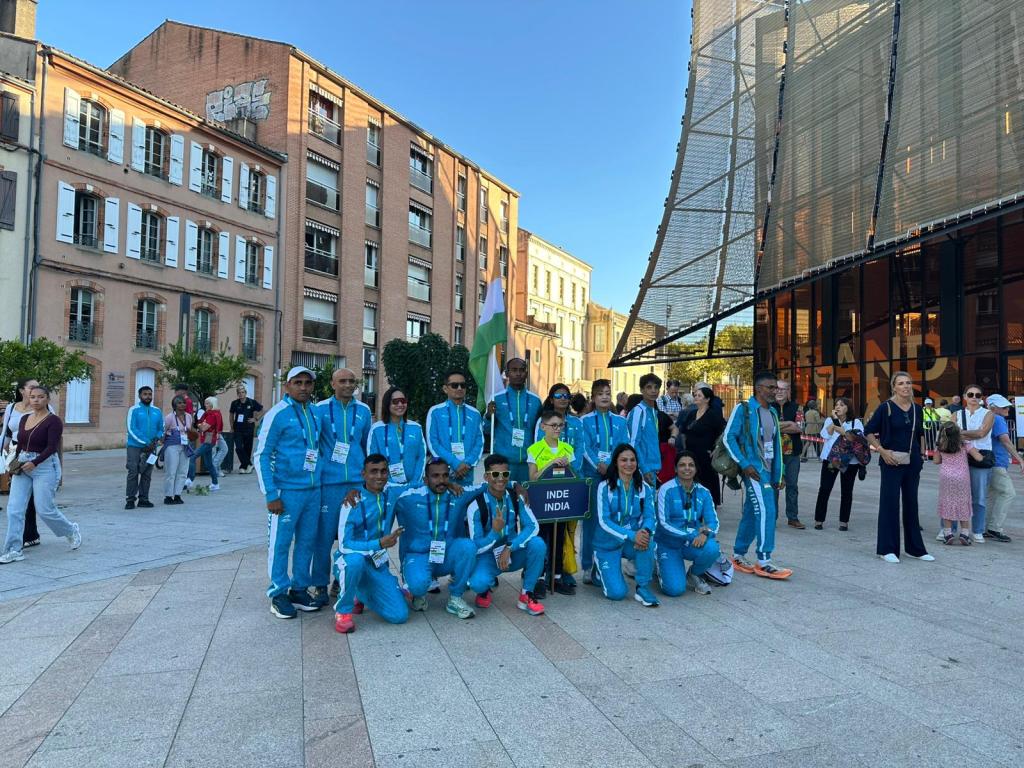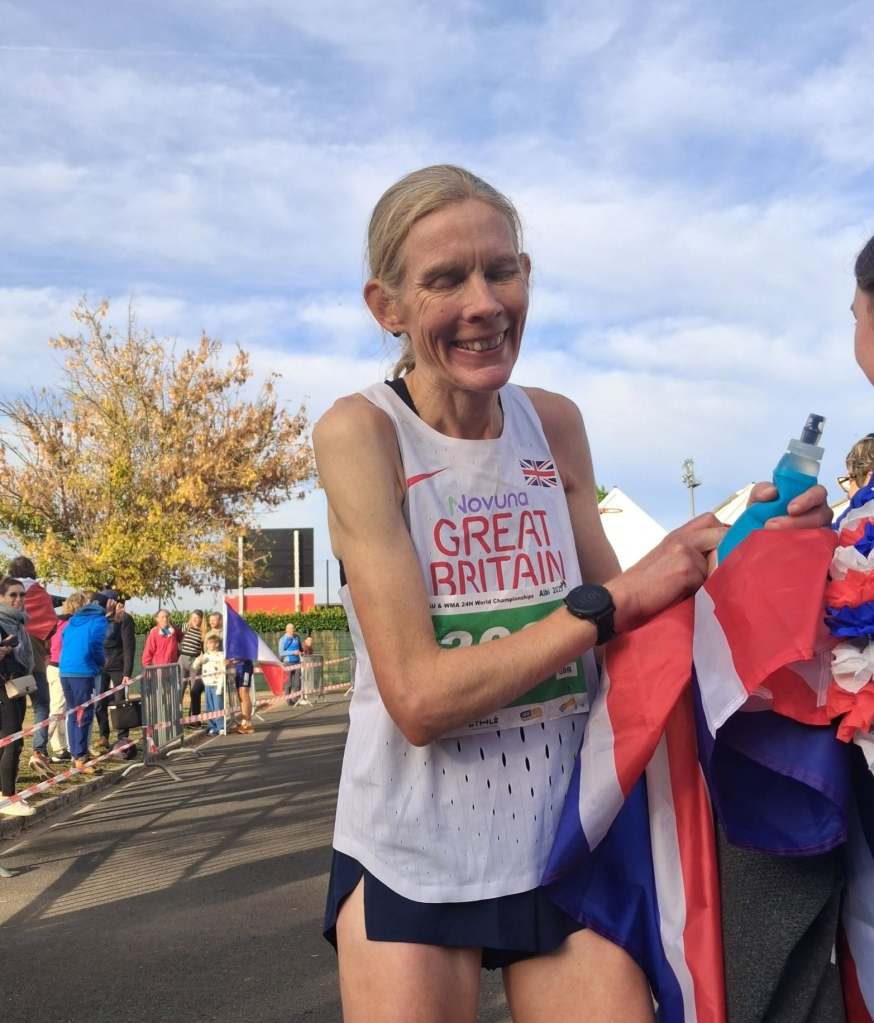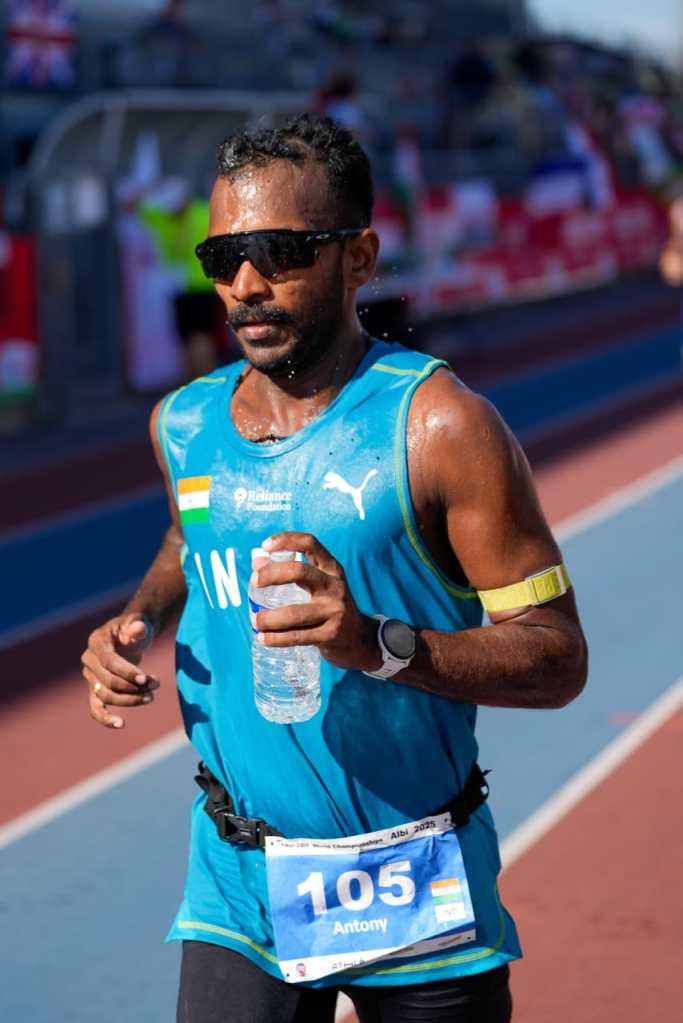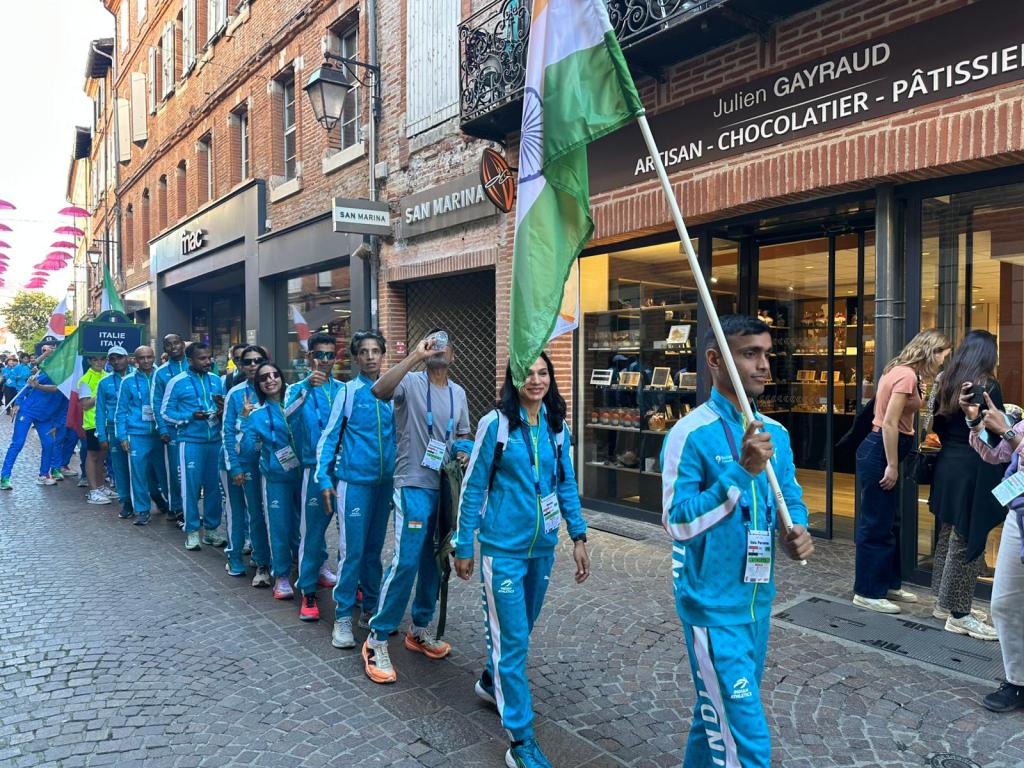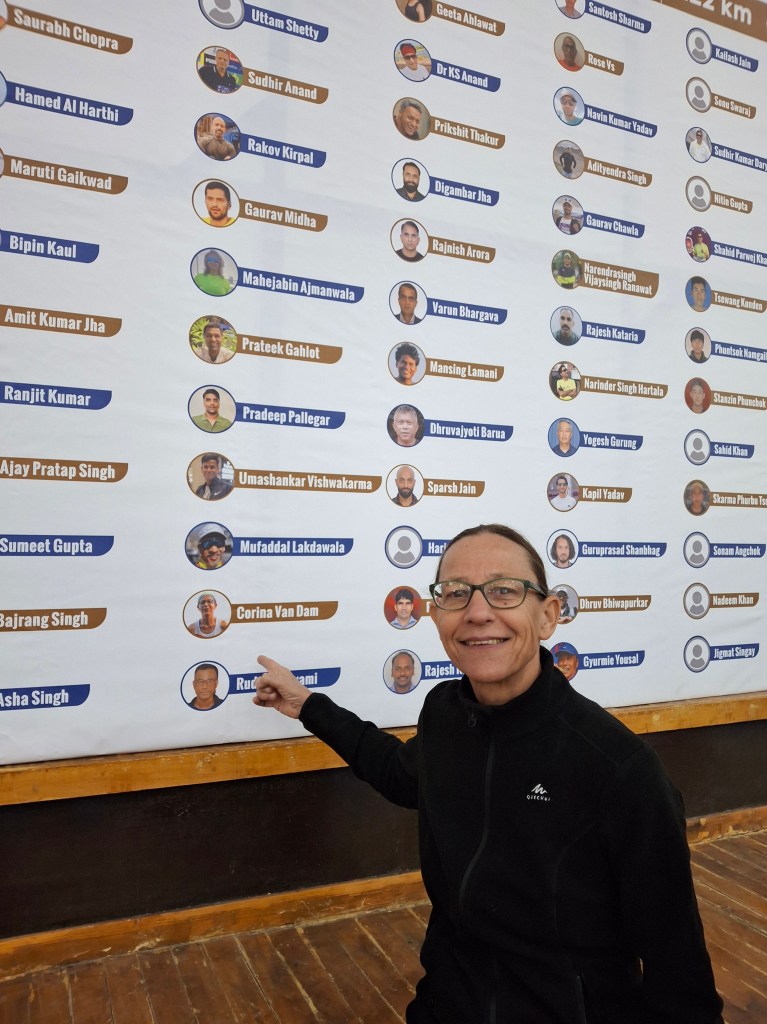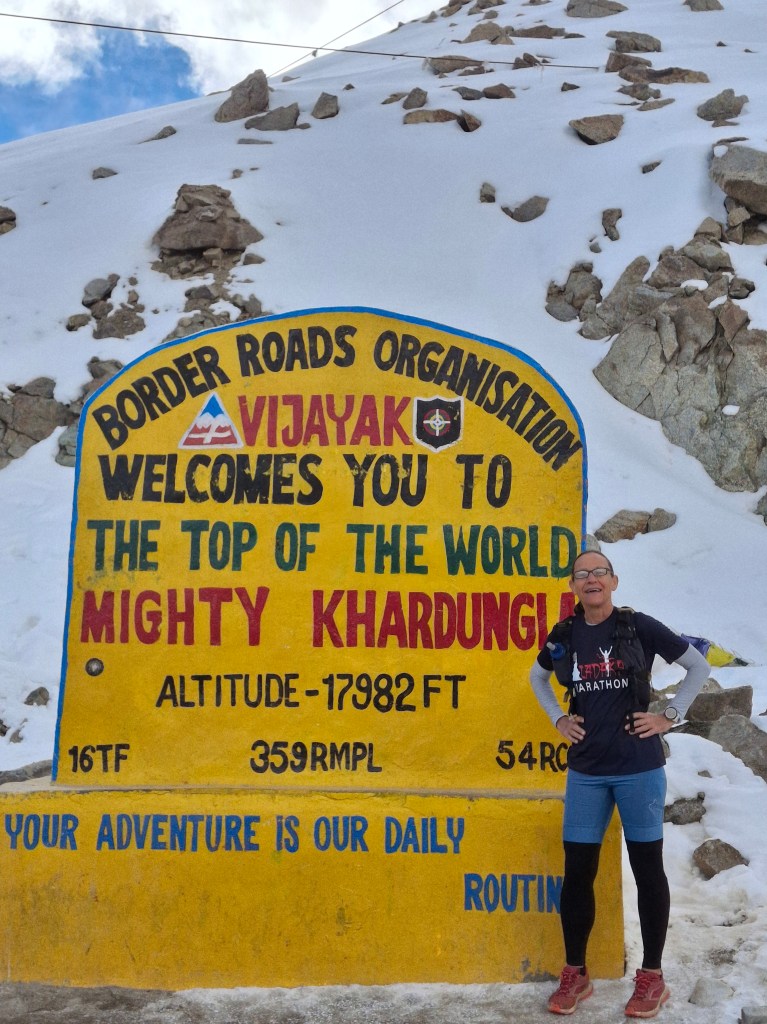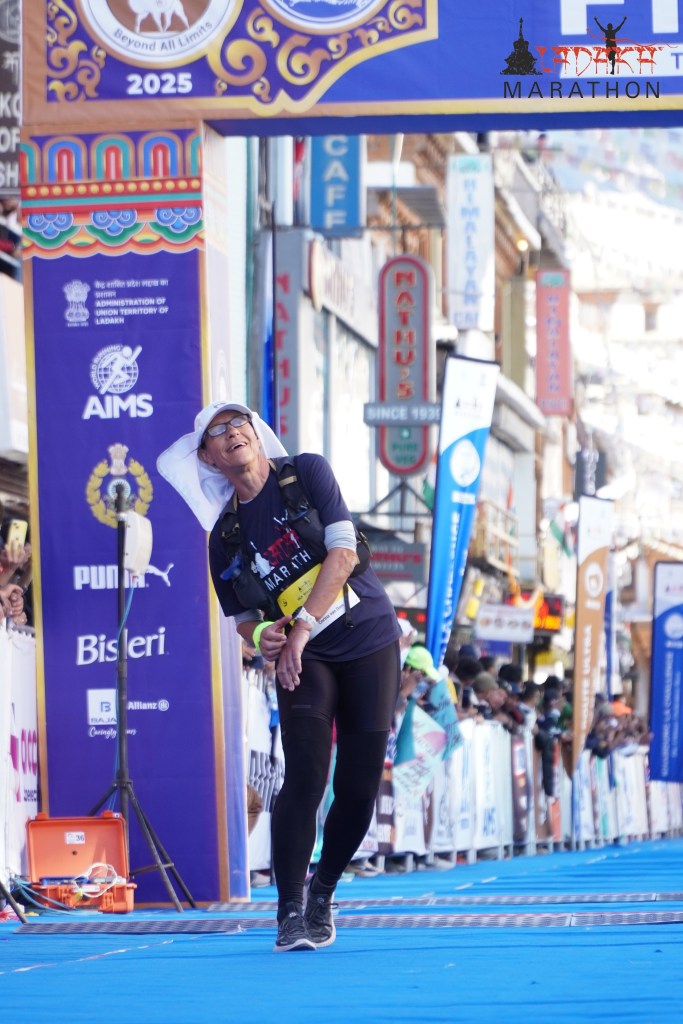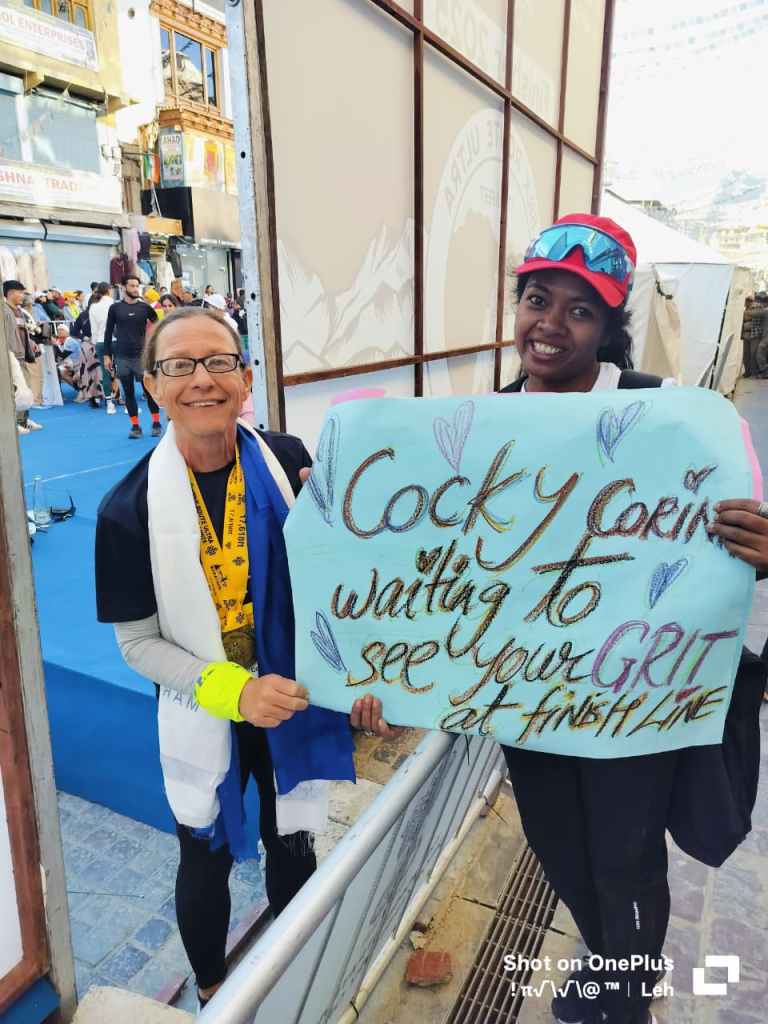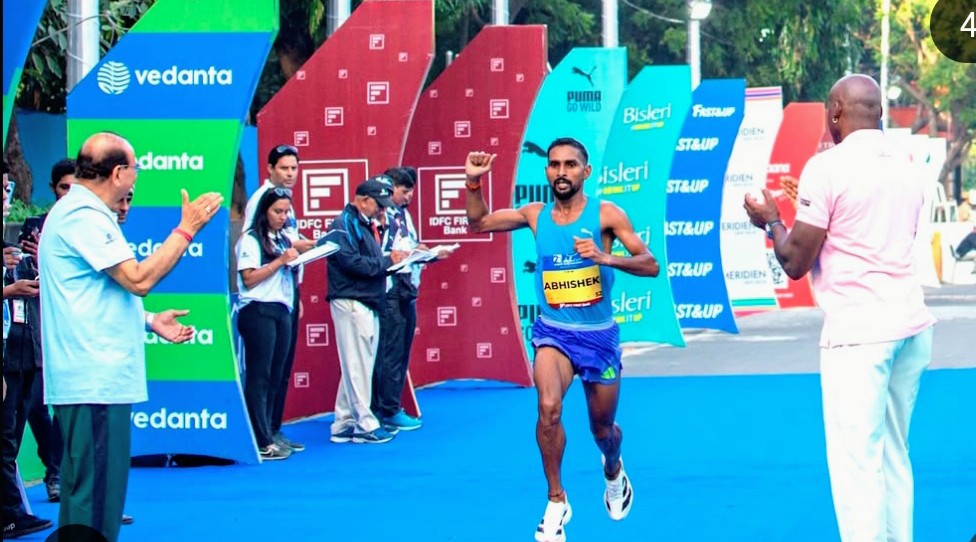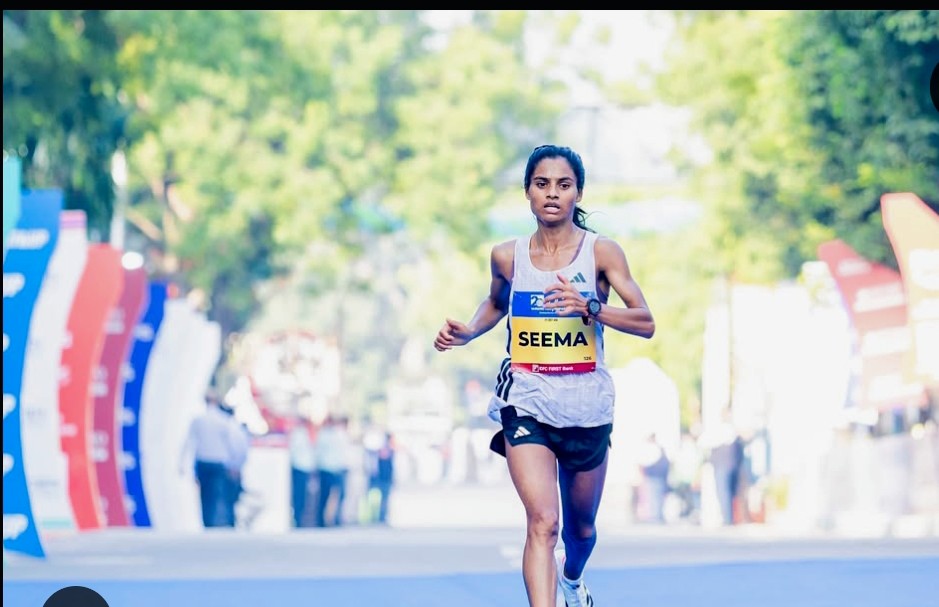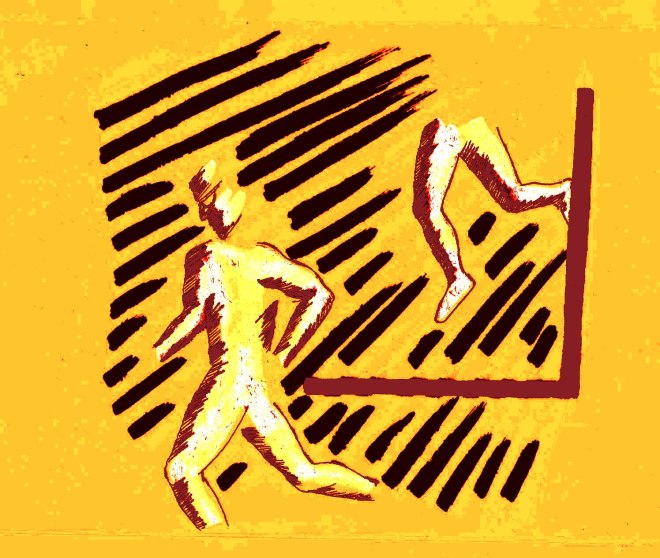Ethiopian runners Tadu Abate Deme and Yeshi Kalayu Chekole were the winners of the 2026 edition of Tata Mumbai Marathon, held on January 18, 2026.
Tadu Deme won the race with a finish of two hours, nine minutes and 55 seconds.
In the women’s elite race, Yeshi secured the top position with a timing of 2:25:13.
Among Indian elite runners, Kartik Karkera won the race with a finish of 2:19:55. Among women Sanjivani Jadhav won with a timing of 2:49:02.
This year, the number of runners on the streets of Mumbai participating in Tata Mumbai Marathon was higher compared to previous editions of the race.
The blog spoke to a select few runners about their experience in achieving their podium finishes.
Ashok Bind
Ashok Bind, originally from Uttar Pradesh, commenced his journey in sports through steeple chase and middle-distance running. He has been running for about 10 years, often securing overall wins or age category podium finishes.
The 23-year-old runner, now living in Bengaluru, says he trains under O.P. Jaisha, India’s celebrated marathon runner. She continues to hold the national record in marathon for her 2:34:43 finish at the 2015 World Championships in Beijing.
“My training for TMM went off as expected and I was able to do the race at Mumbai well,” he said.
At the 2025 edition of Wipro Bengaluru Marathon, Ashok finished eighth overall and first in his age category of 18 to 25 years with a timing of 1:14:41. At the PhonePe Bengaluru Midnight Marathon Run, Ashok finished second in the 20-miler race.
Ashok survives on his prize money earnings from his podium finishes and a private job that he does in Bengaluru.
At TMM 2026, Ashok finished the marathon in 2:30:14, his personal best, securing an overall second position in the open category and top position in his age category of 18 to 24 years.
He is due to participate in New Delhi Marathon to be held on February 22, 2026 in the national capital.
With age on his side, Ashok believes he can improve his timing substantially.
Manoj R S
Twenty-six-year-old Manoj R S has been running since 2018, distances ranging from 5 km, 10 km to half marathon.
“This is the first time I did the full marathon distance. I wanted to try something new,” he said. In the process of training for the marathon he did a weekly mileage of 80-120 km.
During the race, he maintained a pace of 3:28 to 3:34 minutes per km. “My pace suffered a bit in the last 7 km stretch of the marathon,” Manoj said. He finished his debut marathon in 2:30:28, securing overall third position in the open category and second position in his age category of 25 to 29 years.
Originally from Thiruvananthapuram, he is currently based in Ernakulam in Kerala. Manoj’s earnings come from a part-time job at an academy in Ernakulam and the prize money that he gets from many of his podium finishes in various races that he participates.
Prior to Tata Mumbai Marathon, he won the second position in the half marathon race at the Thalassery Heritage Run 2026 held on January 4, 2026 finishing in 1.06:28.
“My run at TMM was my first experience at running a marathon race. I think, I was short on mileage training,” he said adding that he has room for improvement.
He is due to run the Federal Bank Kochi Marathon on February 8, 2026.
Vinothkumar S
Originally from Madurai in Tamil Nadu, Vinothkumar S now resides in Ooty. He has been running for several years now and often securing podium positions.
Vinothkumar is also among those athletes who survive on prize money that he earns from his podium finishes. In 2023, he secured top position in his age category of 30 to 39 years at Vasai Virar Municipal Corporation Marathon with a timing of 2:36:18. The following year, he again topped his age category with an improved timing of 2:32:17. His personal best in a marathon is 2:25:45, which he set at the Tamil Marathon 2023 held in Chennai.
At TMM 2026, his target was 2.26 but during the race he missed out on consuming gels. “The humidity in Mumbai does pose a challenge as I mostly stay and train in Ooty,” he said. Also, the crowd of runners, mostly half marathon runners, towards the last few kilometers of the route necessitates dodging to get ahead towards the finish line.
At TMM 2026, Vinothkumar finished the race in 2:35, securing a lead position in his age category of 40 to 44 years and eighth overall in the open category. He is also due to run the Federal Bank Kochi Marathon on February 8, 2026.
Saurav Ranjan
Ultrarunner Saurav Ranjan, who represents India in key international running events, had no plans to run the 2026 edition of Tata Mumbai Marathon.
Returning from two major ultrarunning events – the IAU 24 Hour World Championships at Albi, France in October 2025 and the IAU 100 kilometer Asia & Oceania Championships at Bangkok, Thailand in November 2025 – Saurav was on a break from training.
Training for these two events was extremely intense with a major focus on building endurance mileage. “I was off training after a rigorous schedule for a few months prior to the two events that I was part of,” Saurav said adding that he did just a couple of long runs as part of the preparation for TMM 2026.
“I had run the 2024 edition of TMM finishing in 2:48:33. Weather in Mumbai is humid but as ultrarunners we cannot complain about weather,” he said.
This time, the route was good and the overall organisation was good with adequate hydration points, he said. “I was able to sustain the pace of 3:44 to 3:51 minutes per km. I think I benefited from the extensive training that I put in for my ultrarunning events,” he said.
Saurav finished his TMM 2026 in 2:41:33, securing a third position in his age category of 30-34 years.
Early February, he is due to compete in the 60 km BSF Run – Road to Heaven in Dholavira in Gujarat.
Vijayaraghavan Venugopal
In November 2025, Vijayaraghavan Venugopal completed his six-star World Marathon Major circuit at the New York City Marathon. He completed it with a personal best timing of 2:47:57.
A sub-three marathon runner, Vijayaraghavan has not only been managing a time efficient finish to his marathons but also bettering it.
“I didn’t specifically train for Tata Mumbai Marathon 2026. I did one run of 30 km and did not participate in any race in the interim,” he said.
At Mumbai Marathon, Vijayaraghavan found the holding area for marathon runners better organised compared with previous years despite the increased number of runners for this distance.
“The addition of coastal road to the marathon route made it more challenging as there was added elevation,” he said. Mumbai’s weather, often humid, was not so much of a bother as much as the air quality, which was quite bad, he said.
While hydration support for marathon runners was mostly well laid out, there could be some more aid stations on the coastal road and the Bandra sea link, some of the lonely stretches along the route, Vijayaraghavan said.
Co-Founder and CEO of Fast & Up, a sports nutrition brand, Vijayaraghavan trains under Canada’s Malindi Elmore, an Olympian middle-distance runner, triathlete and a marathon runner.
At TMM 20206, Vijayaraghavan finished the marathon in 2:50:14 securing the top position in his age category of 50 to 54 years.
After two major marathons – New York City Marathon and Tata Mumbai Marathon – Vijayaraghavan is due to run the 2026 Abbott World Marathon Major Age Group World Championship run at Cape Town in South Africa in May this year.
Reenu Sandhu
Track and field athlete Reenu Sandhu won the gold in the women’s open category of the half marathon at the 2026 edition of the Tata Mumbai Marathon.
Last year Reenu was part of the elite runners for the marathon race but had to pull out of the race at around 27th kilometre.
Reenu, originally from Haryana, is a sub-inspector with the Central Industrial Security Force (CISF) and is posted in Bhopal. A track and field athlete she has been running 5,000 meters, 10,000 meters, half marathon and the full marathon.
“This time I chose to run the half marathon. Mumbai’s weather is too tough for the marathon. Also, the half marathon race starts much earlier than the elite marathon race,” she said. The marathon for elite runners commences at 7 am.
Reenu finished the half marathon race in 1:17:59, winning the women’s open category gold.
Sarswati Rai
In 2025, Sarswati Rai, the runner from Kalimpong, was the winner among women in the open category Tata Mumbai Marathon. This time around, she had to settle for the third position in open category.
Though her training was good, a niggling knee issue was hampering her running. Encouraged by her husband, she started running about 11 years ago and has been securing podium finishes in most of the races she participates.
“This time the change in the route for full marathon did pose a challenge. There were too many elevations,” she said. This time around, the marathon route included stretches of the newly opened coastal road, which has a few added elevations.
For a runner from Kalimpong, Mumbai’s humidity is also an issue to contend with.
Sarswati finished her TMM run with a timing of 3:12:10, nearly two minutes more than her 2025 finish, which secured her a gold in open category.
She is now due to run the Bordermen Marathon to be held on February 22, 2026 from Golden Gate Amritsar to JCP Attari.
Kranti Salvi
Mumbai’s Kranti Salvi is a regular at many running events either as an ambassador or a runner, who often returns with podium finishes.
She has been running the marathon at Mumbai Marathon for several years. She chose to run with a cause – that of saving Sanjay Gandhi National Park and raising voice against the unchecked development being allowed inside the national park.
“I wore the banner “Hands Off Our Forest” on my back. There were at least 600 runners who chose to run with this banner additionally apart from their timing bib,” Kranti said.
“With nearly 70,000 participants on the ground, the Mumbai Marathon is perhaps the most powerful platform in the city to create awareness,” she said.
The banner that many runners wore during the Mumbai Marathon
Her race went off well and she finished in 3:59:33, securing a second position in her age category of 55 to 59 years.
(The author, Latha Venkatraman, is an independent journalist based in Mumbai)

